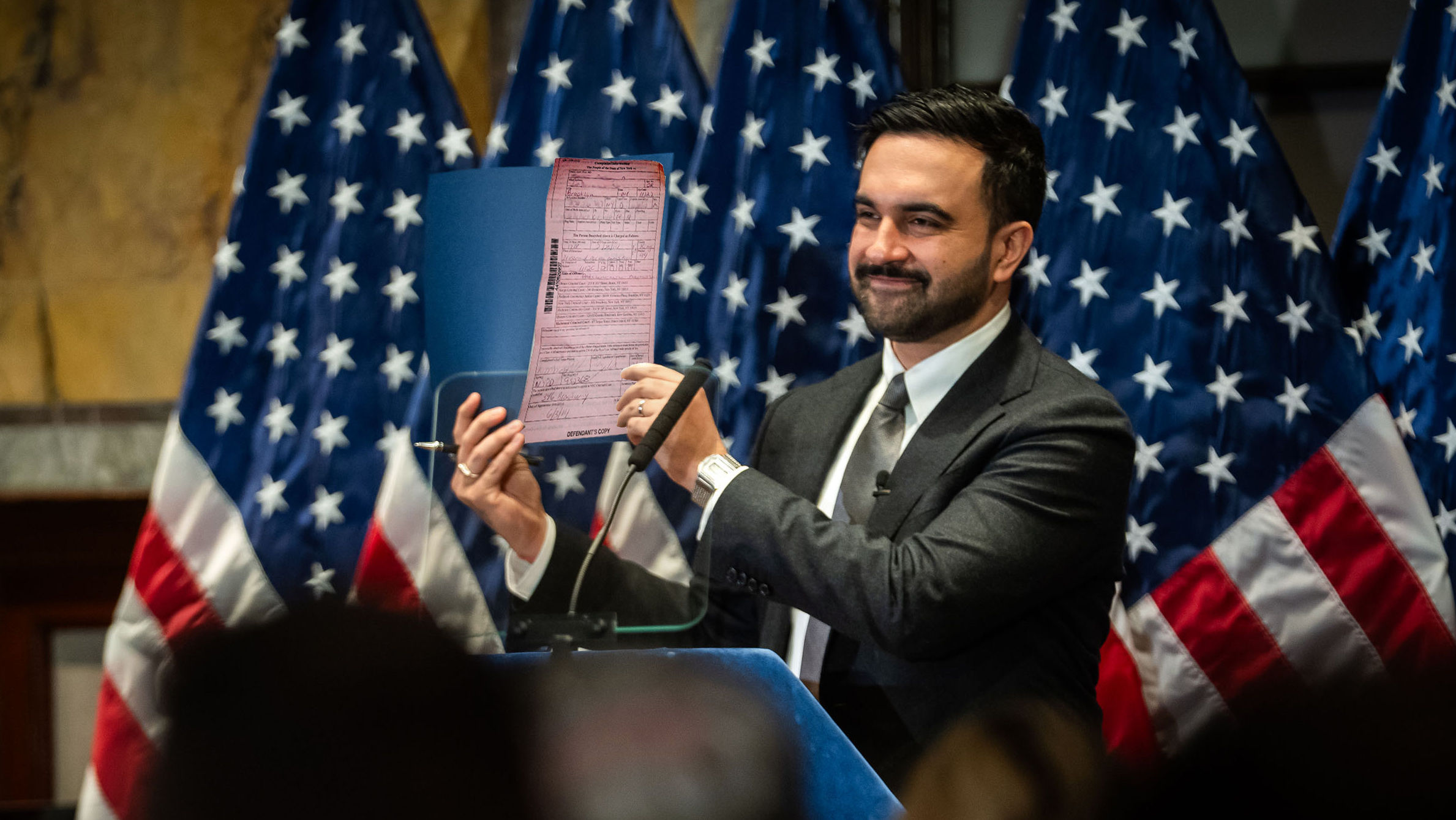The current iteration of Grand Street, by most any objective measure, has to be considered a success. In the year since it was reconfigured to host the city's first parking-protected bike lane, with the blessing of Community Board 2, injuries are down 30 percent, with about 1,000 cyclists using the lane daily.
 Thompson tells NY1 he'll "review" recent safe street projects.
Thompson tells NY1 he'll "review" recent safe street projects.Other recent street safety projects are paying off with similar dividends, according to DOT data:
- After the Ninth Avenue protected bike lane was installed in 2007, injuries among all users dropped 56 percent.
- The protected Broadway bike lane between 42nd and 35th Streets brought a 50 percent drop in injuries.
Given quality of life improvements like these, it would make sense for mayoral challenger Bill Thompson to promise to at least stay the course, if not to one-up the incumbent. And in his responses to the Transportation Alternatives Candidate Survey, Thompson comes across as a big believer in the benefits of livable
streets. New MTA revenue streams, expanded BRT service, ramped-up
traffic enforcement, on-street parking reform -- when playing to the TA
crowd, the candidate is nearly pitch perfect.
But depending on whom he's talking to, Thompson is either eager to expand
on the safe streets initiatives of the past few years or eradicate them
on day one -- starting with a shake up at DOT and removal of the Grand
Street lane.
If increased safety and community board approval wouldn't be enough for
a project to be judged a success by Mayor Thompson, what criteria would
he use? Though we were assured several times that the candidate supports bike lanes, our conversation with a Team Thompson spokesperson did little to
clear things up.
"It's a wide range of factors," said the spokesperson. "It's not just the small
businesses in the area, it's also the community. I can't comment on
something in the future. I mean, obviously you have to look at each
bike lane separately, right?"
Despite a lot of talk about "community," the spokesperson did not mention health or safety as factors in determining worthy projects.
"We've heard from the
community. Not just the community board, but from small business
community members, neighbors in the area that felt like the bike lane
has actually hurt business in the area. Obviously with the economy the
way it is, you want to do all you can to help the small businesses of
New York. Again, I just want to make it clear that he does support bike
lanes. He's said it over and over again."
So when it comes to livable streets initiatives under the Thompson administration, the litmus test won't be public health, or even environmental impact, but feelings and anecdotes. When you single out one of the city's most effective cyclist safety improvements for immediate demolition based on who's screaming loudest, a promise of theoretical support simply doesn't hold water. No matter how many times you say it.





